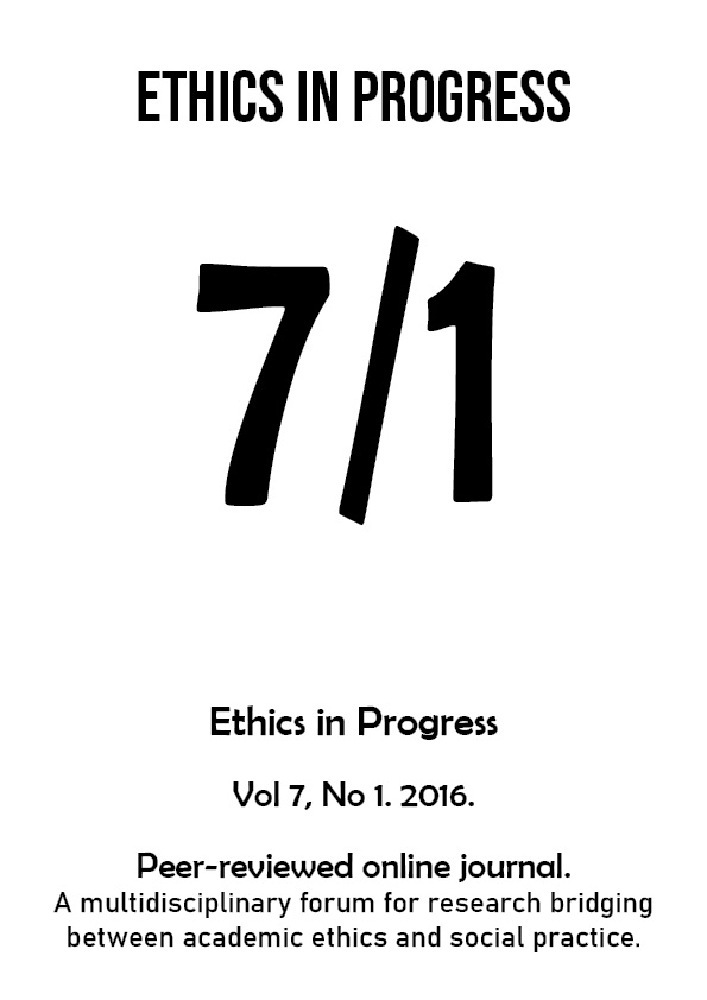Abstract
The break-up of the Soviet Union in 1991 sharply cast the relationships between the Republics of post-Soviet space and Russia back, mutual trust was lost, economic and cultural interaction was practically stopped. The global changes of the 1990s in the field of political order, social and economic lifestyle in the countries of the former socialist camp brought up to severe demographic situation (depopulation), impoverishment of its significant part, criminalization of society and, what is quite important, to negative changes in consciousness and behavior of its population, including deformation of ethical code of personality, for long time fixing the acute social-cultural situation. A. Zhuravlev & A. Yurevich call that the moral collapse.
It is worth mentioning that the economic crisis of the 90s in Georgia was considerably more serious than in Russia. Attempt to teach norms of “new” morale were done by M. Saakashvili (2009–2013), who declared that during 20 years he would be able to change the mentality of Georgians – rejection of the Russian culture and language up to prohibition and adherence to anti-Russian policy at a level of the State. The author reports on that project and she intends to find the difference of how moral competence is understood by the generation which was formed in 1990s and the generation formed under the Soviet Union.
References
Arakelov, G. G. 2012. “Eco–Psychological Trouble of the Russian People.” Research and Production Center for Testing Union from 27.11.2012. URL: http://www.gooddoktors.ru/full_news/232/. Retrieved on: 01.08.2016.
Babkin, S. 2016. “For What Is the Way, If It Does Not Lead To the Temple? Are There Enough Churches in Moscow?”. The Village 03.03.2016. URL: http://www.the-village.ru/village/city/moscow-in-figures/232477-urban-sacred. Retrieved on: 01.08.2016.
Bakhtadze, M., M. Vachnadze, & V. Guruli. 2016. „History of Georgia.” URL: http://www.e-reading.club/book.php?book=4682. Retrieved on: 25.03.2016.
Dandurov, D. 1937. “S. Rustaveli.” In Life of Remarkable People. Illustrated edition. URL: http://www.gramotey.com/?open_file=1269098657/. Retrieved on: 08.20.2016.
Dubin, B. 2002. “Generation: The Sociological Limits of Concept. Monitoring of Public Opinion: Economic and Social Changes.” Russian Public Opinion Research Center 2. URL: http://elibrary.ru/item.asp?id=9207243. Retrieved on: 03.25.2016.
Efimova, E. 2016. “Russian Language in the South Caucasus: To Be Or Not To Be?”. Rhythm of Eurasia 03.03.2016. URL: http://www.ritmeurasia.org/news–2016-03-03–russkij-jazyk-v-zakavkaze-byt-ili-ne-byt-22204. Retrieved on: 27.03.2016.
Filepenok, A. 2016. “Patriarch Warned About the Threat of 'Global Heresy of Man – Idolatry.” RBC 03.02.2016. URL: http://www.rbc.ru/society/20/03/2016/56eef5d49a79477cdaaef4ea Retrieved on: 01.08.2016.
Flavell, J. H., P. H. Miller, & S. A. Miller. 1993. Cognitive Development. NJ: Prentice Hall, Englewood Cliffs.
Fuchs, J. 1987. “The Phenomenon of Conscience: Subject-Orientation and Object-Orientation.” In G. Zecha & P. Weingartner (eds.) Conscience: An Interdisciplinary View (pp. 27–47). Dordrecht: D. Reidel Publishing Company.
Genesis. 2016. "Orphanages and Shelters." Genesis. Access: http://www.genesis.org.ge/orphanages2.htm. Retrieved on: 01.08.2016.
Gruzeva, T. S. & L. I. Galienko. 2012. “Health – the Basis of Human Development: Problems and Ways of Solving Them”. Improving the Mental Health 2(7). URL: http://cyberleninka.ru/article/n/uluchshenie-psihicheskogo-zdorovya. Retrieved on: 03.25.2016.
Guseinov, A. A. 2016. “Is Morality Possible, Independently of Religion?”. Digital Library of Philosophy. URL: http://filosof.historic.ru/books/item/f00/s01/z0001043/st000.shtml Retrieved on 03.25.2016.
Guseinov, A. A., A. G. Gadzhikurbanov et al. 2013. Ethics: A Textbook for bachelors. Moscow: Yurayt Publishing.
Interfax. 2016. “Russia Ranked First in Europe in the Number of Women Prisoners." Interfax Main News March, 08. URL: http://www.interfax.ru/russia/497635. Retrieved on 17.04.2016.
Kalotozashvili, G. 2009. “Addiction in Georgia.” Caucasus Bulletin 19.11.2009. URL: http: //www.vestikavkaza.ru/articles/11772.html. Retrieved on: 03.03.2016
Karlin, A. 2015 “Saakasvili’s Legend. A Con for the Ages.” URL: http://www.unz.com/akarlin/saakashvili-legend/. Retrieved on: 03.27.2016.
Kekelidze, K. 1944 “Persian Sufism and Culture of Georgia.” In Concise Course of History of Ancient Georgian Literature. Historical Studies of Ancient Georgian Literature. URL:
http://prt.sufism.ru/index.php/sufism/2010-05-26-20-33-09/393-georgia-persia-sufism. Retrieved on: 03.03.2016
Kərimova, A. 2016. “Azerbaijan Will Supply Gas to All Christian Churches and Monasteries of Georgia.” Geomigrant.com. URL: http://www.geomigrant.com/2015/11/11/Азербайджан-обеспечит-все-христианские-храмы-и-монастыри-Грузии-газом/. Retrieved on: 03.27.2016.
Kolesov, V. V. 2004. Word and Deed: From the History of Russian Words. St. Petersburg: St. Petersburg University Publishers.
Lind, G. 2016. How to Teach Morality. Promoting Deliberation and Discussion, Reducing Violence and Deceit. Berlin: Logos.
Manerov, V. Kh. 2011. “Psychological and Pedagogical Aspects of Spiritual and Moral Development of the Youth of Today.” In Collected Materials of the International scientific-practical conference 17th–18th Nov 2011 (pp. 59–76). Pskov: Pskov State University Publishers.
Manerov, V. Kh. & Kaznina, E. Y. 2016. “The Content of Transcultural Invariant and Culturally-Specific Components Notions of Conscience (When Comparing the Russian and Georgian Students).” Proceedings of the V All-Russian Conference of Students, Graduate Students, Young Scientists Dedicated to Actual Human Problems in Today's Innovative Education and Research.
Merton, R. 1966. Social Structure and Anomie. Sociology of Crime (Modern Bourgeois Theory). Moscow: Progress.
Ministry of Education and Science of Georgia. 2010. "Mikhail Saakashvili Met with English Teachers." Informational and Analytical Portal Georgia Online 16.08.2010. URL: http://www.apsny.ge/2010/pol/1281994040.php. Retrieved on: 03.03.2016.
Munsey, B. (ed) 1980. Moral Development, Moral Education, and Kohlberg. Birmingham, Al: Religious Education Press.
Peresishvili, M. 2015. "Records of the Georgian Penitentiary System." Echo of the Caucasus 11.02.2015. URL: http://www.ekhokavkaza.com/content/article/26842762.html. Retrieved on: 01.08.2016.
Pearls, F. 2012. Ego, Hunger and Aggression. Trans. N.V. Krylova. Moscow: Smisl.
Shapiro, V. D. & Gerasimov, M. G. 2016. “The Attitude Towards Religion and Religious Tolerance in Teens.” URL: URL:http://www.civisbook.ru/files/File/Shapiro_Otnoshenie k religii.pdf. Retrieved on: 08.01.2016.
Sycheva, T. Y. 2009. “Socio – Psychological Attitudes As a Factor that Determines the Moral Consciousness of the Person.” Interexpo Geo-Siberia 6. URL: http://cyberleninka.ru/article/n/sotsialno-psihologicheskie-ustanovki-kak-faktor-opredelyayuschiy-moralnoe-soznanie-lichnosti. Retrieved on: 03.03.2016.
Wallwork, E. 1980. Morality, Religion, and Kohlberg’s Theory. Moral Development, Moral Education, and Kohlberg. Birmingham, Al: Religious Education Press.
Volovikova, M. I. 2011. “Problem of Psychological research of Conscience”. In A. L. Zhuravlev & A. V. Yurevich (eds.) Psychological Studies of Spiritual and Moral Problems (pp. 71–87). Moscow: Publishing House of Institute of Psychology of Academy of Sciences of Russian Federation.
Yurevich, A. V. & D. V. Ushakov. 2010 “Moral State of Modern Russian Society.” In A. L. Zhuravlev & A. V. Yurevich (eds) Psychology of Morality (pp. 177–209). Moscow: Publishing House of Institute of Psychology of Academy of Sciences of Russian Federation.
Yurevich, A. V. 2009. “The Moral State of Modern Russian Society.” Sociological Studies 10. URL:
http://ecsocman.hse.ru/data/419/979/1207/Urevich_8.pdf. Retrieved on: 08.01.2016.




